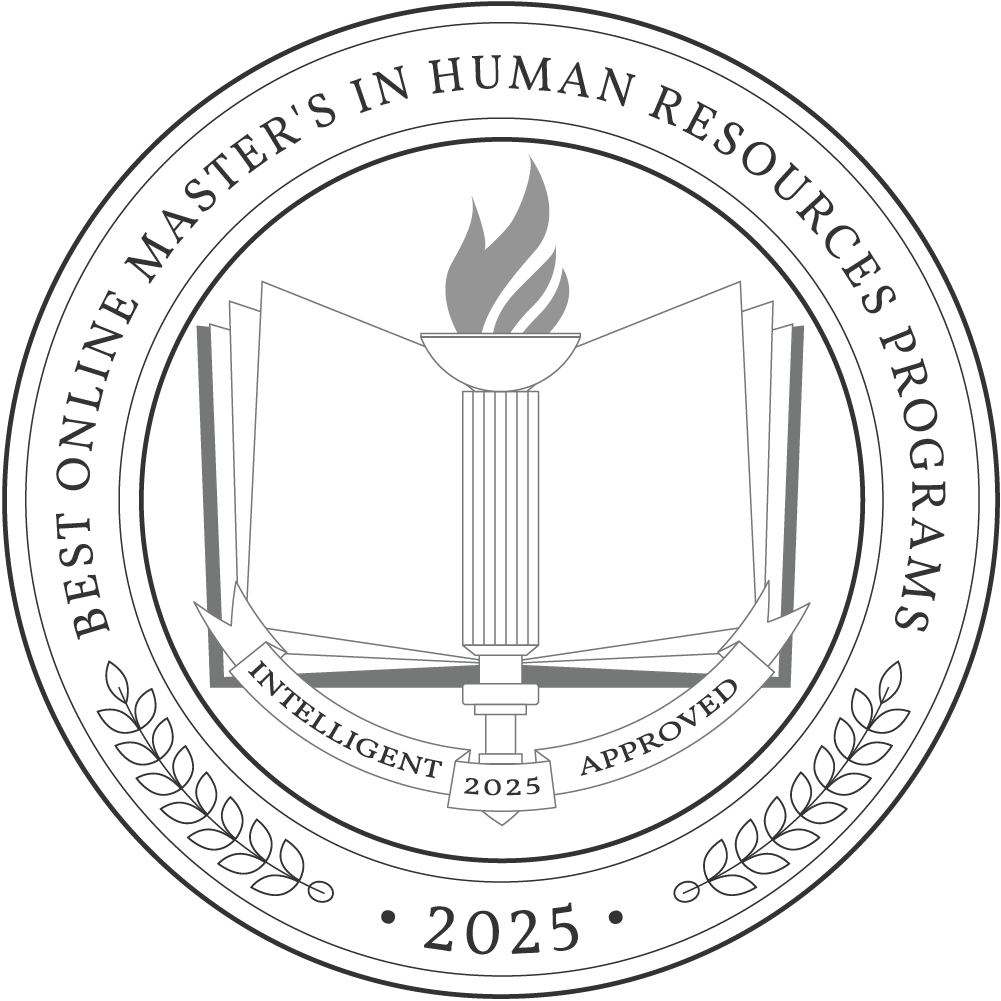As an integral part of all businesses, human resources offers a steady job outlook and many opportunities. Whether students are starting or advancing their HR careers, an online master’s degree will prepare them for the certifications and skills needed for this dynamic field.
The Bureau of Labor Statistics predicts a 5% increase in human resources management positions through 2032. HR managers earn a median annual salary of $136,350. Those who work specifically as training and development managers earn a median yearly salary of $125,040, and employment is expected to increase by 6%.
Intelligent.com compiled this list of the best online master’s in human resources by comparing dozens of programs based on cost, retention and graduation rates, curriculum, and more. We also interviewed Blanca Villagomez, program coordinator and counselor at UC-Irvine, for her insight into what students can expect in an online HR master’s program, how to choose the right one, and the career outlook for the field.
What Can I Expect from an Online Master’s in Human Resources Program?
Human resources professionals act as go-betweens for a company’s bureaucracy and employees. Responsibilities may include recruiting, hiring, and onboarding new staff, coordinating employee benefits, mediating disputes, overseeing disciplinary procedures, and managing other administrative functions. Because interacting with various constituencies is a key function of HR employees, communication, interpersonal, and collaboration skills are essential to success in this field.
A quality online master’s in human resources will cover all this and more. These programs can range from 30-48 total credits, including core classes, electives, and internships. Programs that require fewer credits are designed for individuals with an educational or professional background in HR. In contrast, longer programs include foundational coursework for those with little or no experience in the field.
Students have several options regarding what type of master’s degree to get. Options include a Master of Arts (MA), Master of Science (MS), Master of Business Administration (MBA), or Master of Professional Studies (MPS). The different degree types have distinct theoretical and pedagogical approaches to human resources education, and they may have different graduation requirements, such as a capstone project or thesis. However, core curriculums typically cover specific concepts and skills, including:
- Organization management
- Critical-thinking and decision-making
- Business strategy and ethics
- International HR management
- Strategic planning
- HR law and compliance
There is also an array of options for specializations within HR, including talent development and training, recruiting, compensation and benefits, conflict mediation, and more. Students with a specific interest should seek out programs offering electives or concentration opportunities in that area.
Immersive learning experiences like internships are common in HR degree programs. Students currently employed in HR should inquire with their school about completing their internship at their current site. Online students should also ask if they can fulfill internship requirements remotely or if they are expected to attend an on-site internship.
Students should also consider whether their program prepares them for any professional certifications. While certifications aren’t necessarily required for HR jobs, many employers seek employees with these credentials to demonstrate their expertise and experience. Organizations that offer certificates include the Society for Human Resources Management (SHRM), the HR Certification Institute (HRCI), and the International Association for Human Resource Information Management (IHRIM).
Potential courses you’ll take in an online master’s in human resources program
- Organizational Theory and Behavior: This course provides an overview of the fundamental concepts of organizational theory and behavior and teaches students how to evaluate management theories relevant to a manager’s role, design organizational structures to maximize decision-making, and recognize the significance of systems thinking to contemporary organizations.
- Statistics for Managerial Decision-Making: This course examines how managers organize, analyze, and interpret data for decision-making, with a focus on developing skills in using statistical tools to make effective business decisions in all areas of public and private-sector decision-making.
- Issues and Practices in Human Resources Management: This course explores the theories, research, and issues related to human resource management within modern organizations and discusses the roles, responsibilities, relationships, functions, and processes of human resource management from a systems perspective.
- Recruitment and Selection: This course examines the initial phases of staffing, focusing on the hiring process and investigates the contemporary roles, relationships, and processes of recruitment and selection in the human resource management system.
- Analyzed over 2,000 national, accredited, and nonprofit colleges and universities
- 800+ rankings pages are reviewed and updated yearly
- Content is informed by reputable sources, surveys, and interviews with academic advisors and other experts
- Over 100 data points are reviewed for accuracy and quality throughout the year, including sources
- Admission rate versus enrollment rate
- Retention rate of students who return after year one
- Accreditation status (regional and programmatic)
- Nonprofit status, both private and public institutions
- Overall graduation rate
- Total number of currently enrolled students, including diversity metrics
- Student-to-faculty ratio
- In-state and out-of-state per-credit tuition rates and fees
- Required credits to graduate
- Earning potential after graduation
- Availability of federal student loans, scholarships, and other financial aid options
- Available student services for online-only and hybrid programs
- On-campus amenities like tutoring centers and the number of libraries
Why Trust Us
The Intelligent.com Higher Education Team is dedicated to providing students with independent, equitable school and program rankings and well-researched resources. Our expert-driven articles cover topics related to online colleges and programs, paying for school, and career outlooks. We use data from the U.S. Department of Education’s College Scorecard, the National Center for Education Statistics, and other reputable educational and professional organizations. Our academic advisory team reviews content and verifies accuracy throughout the year for the most current information. Partnerships do not influence rankings or editorial decisions.
How we rank schools
Our list features the best online Human Resources degree programs at top colleges nationwide. Each school featured is a nonprofit, accredited institution — either public or private — with a high standard of academic quality for post-secondary institutions.
We evaluated each school’s program on tuition costs, admission, retention and graduation rates, faculty, reputation, and the student resources provided for online students. We collected data from trusted sources like the National Center for Education Statistics, individual school and program websites, school admissions counselors, and other data sources. Then, we calculated the Intelligent Score on a scale of 0 to 100 based on the following criterion:
Academic Quality:
Graduation Rate
Cost and ROI
Student Resources
Read more about our ranking methodology.
Best 38 Online Master’s in Human Resources Programs
FiltersInstitution Type
Status
- Intelligent Score
- Alphabetically By University Name
- Acceptance Rate
- Enrollment
- In-state Graduate Tuition
- Out-of-state Graduate Tuition
- In-state Undergraduate Tuition
- Out-of-state Undergraduate Tuition

Florida International University
Intelligent Score: 97.78In-state: $4,721
Out-of-state: $16,529
In-state: $8,912
Out-of-state: $8,912
SAT: 1110-1260
ACT: 23-29
$921
Online, On-Campus
Association to Advance Collegiate Schools of Business
38
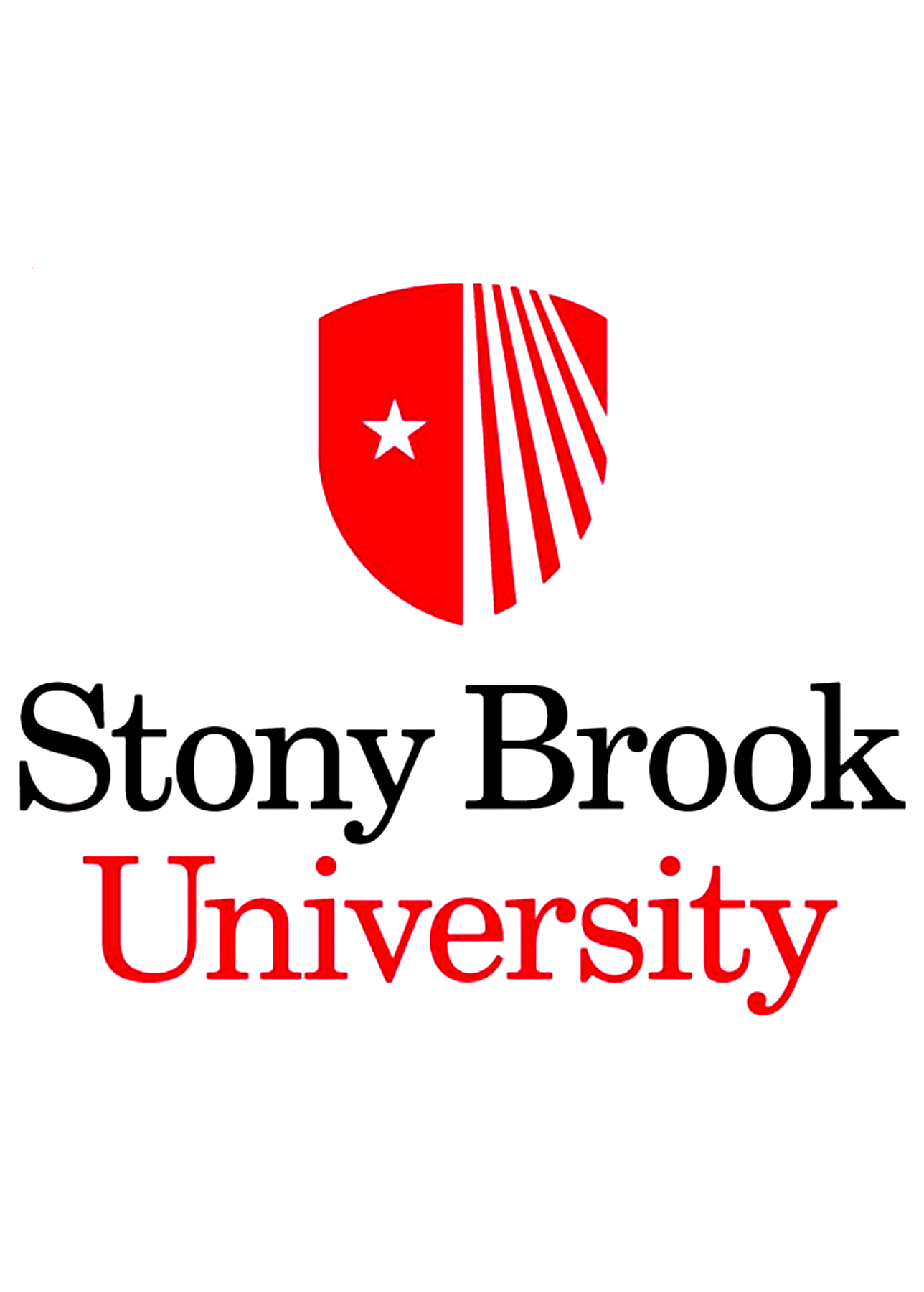
Stony Brook University
Intelligent Score: 94.90In-state: $7,070
Out-of-state: $24,740
In-state: $11,310
Out-of-state: $11,310
SAT: 1230-1440
ACT: 26-32
In-State: $610
Out-of-State: $704
Online, On-Campus
Middle States Commission on Higher Education
30

Rutgers University - New Brunswick
Intelligent Score: 94.8In-state: $12,230
Out-of-state: $29,012
In-state: $17,736
Out-of-state: $17,736
SAT: 1180-1410
ACT: 25-32
$1,183
Online
Middle States Commission on Higher Education
33

USC Bovard College
Intelligent Score: 94.79In-state: $59,260
Out-of-state: $59,260
In-state: $47,880
Out-of-state: $47,880
SAT: 1340-1530
ACT: 30-34
$2,244
Online
Western Association of Schools and Colleges Senior College and University Commission
24

Clemson University
Intelligent Score: 94.52In-state: $14,118
Out-of-state: $37,110
In-state: $10,600
Out-of-state: $10,600
SAT: 1210-1390
ACT: 27-32
$800
Online
Southern Association of Colleges and Schools Commission on Colleges
30

Georgetown University
Intelligent Score: 92.99In-state: $57,384
Out-of-state: $57,384
In-state: $53,136
Out-of-state: $53,136
SAT: 1380-1550
ACT: 31-35
$1,620
Online, On-Campus
Middle States Commission on Higher Education
33

CSU Global
Intelligent Score: 92.58In-state: $9,426
Out-of-state: $28,147
In-state: $10,520
Out-of-state: $10,520
SAT: 1070-1280
ACT: 23-29
$675
Online
Accreditation Council for Business Schools and Programs
36

Golden Gate University
Intelligent Score: 89.78In-state: $12,456
Out-of-state: $12,456
In-state: $19,620
Out-of-state: $19,620
SAT: N/A
ACT: N/A
$1,090
Online, Hybrid
Western Association of Schools and Colleges Senior College and University Commission
27

University of Illinois at Urbana - Champaign
Intelligent Score: 89.75In-state: $14,317
Out-of-state: $33,824
In-state: $15,016
Out-of-state: $15,016
SAT: 1200-1460
ACT: 27-33
$755
Online
Higher Learning Commission
48

PennState World Campus
Intelligent Score: 89.33In-state: $15,025
Out-of-state: $24,413
In-state: $22,464
Out-of-state: $22,464
SAT: 1070-1300
ACT: 24-29
$1,017
Online
Middle States Commission on Higher Education
33

Webster University
Intelligent Score: 89.23In-state: $28,500
Out-of-state: $28,500
In-state: $13,500
Out-of-state: $13,500
SAT: 1078-1260
ACT: 20-27
$752
Online, On-Campus
Accreditation Council for Business Schools and Programs
36

GW School of Business
Intelligent Score: 87.85In-state: $55,961
Out-of-state: $55,961
In-state: $31,770
Out-of-state: $31,770
SAT: 1270-1450
ACT: 30-33
$2,420
Online, On-Campus, Hybrid
Middle States Commission on Higher Education
30

Purdue University
Intelligent Score: 87.18In-state: $9,208
Out-of-state: $28,010
In-state: $9,208
Out-of-state: $9,208
SAT: 1170-1420
ACT: 25-33
In-State: $1,068
Out-of-State: $1,118
Online, On-Campus
Association to Advance Collegiate Schools of Business
30
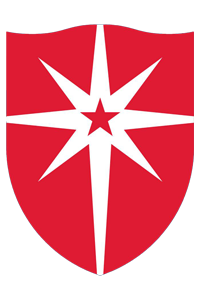
Saint Mary's University of Minnesota
Intelligent Score: 85.88In-state: $54,870
Out-of-state: $54,870
In-state: $35,515
Out-of-state: $35,515
SAT: 1030-1240
ACT: 21-28
$730
Online
Higher Learning Commission
36
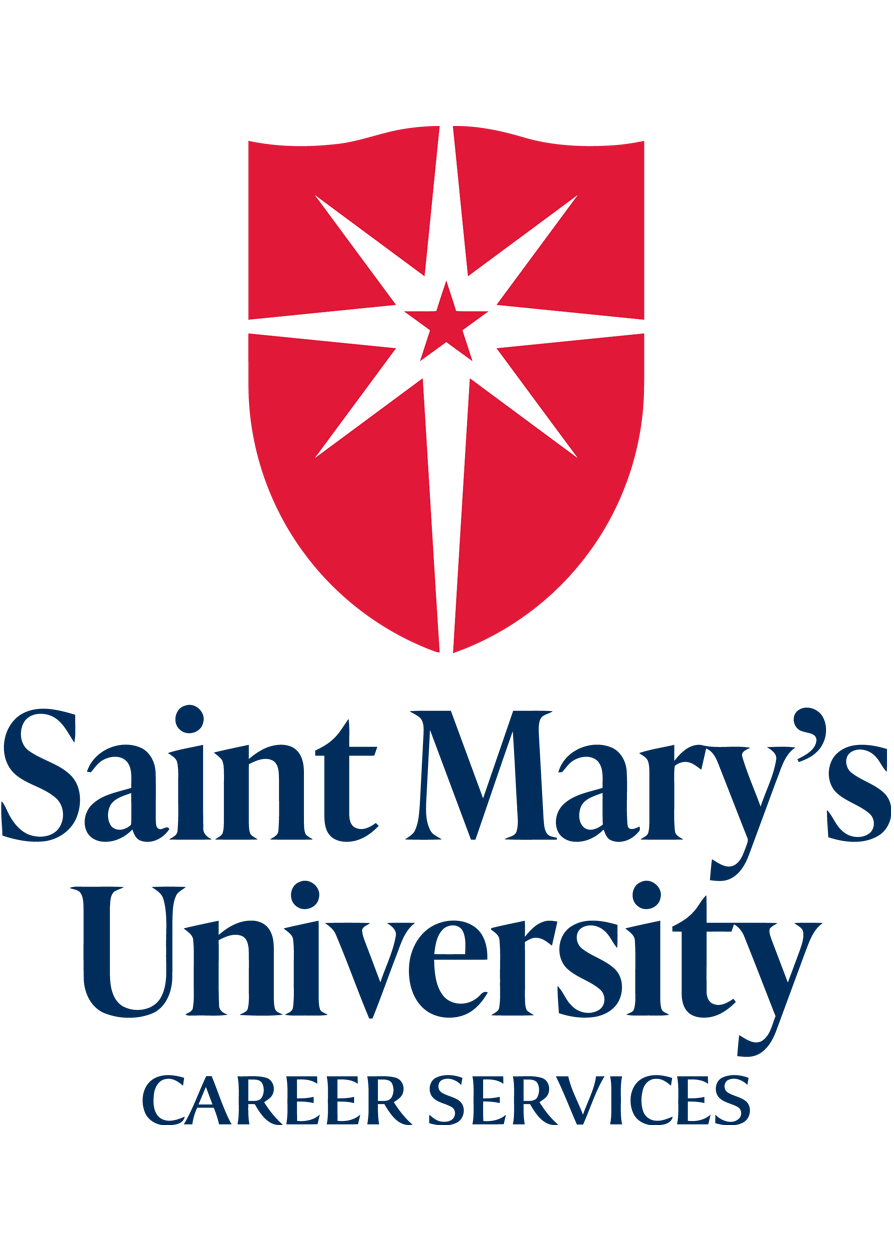
Saint Mary's University of Minnesota
Intelligent Score: 85.88In-state: $48,850
Out-of-state: NA
In-state: NA
Out-of-state: NA
SAT: NA
ACT: NA
$730
Online
Higher Learning Commission
36
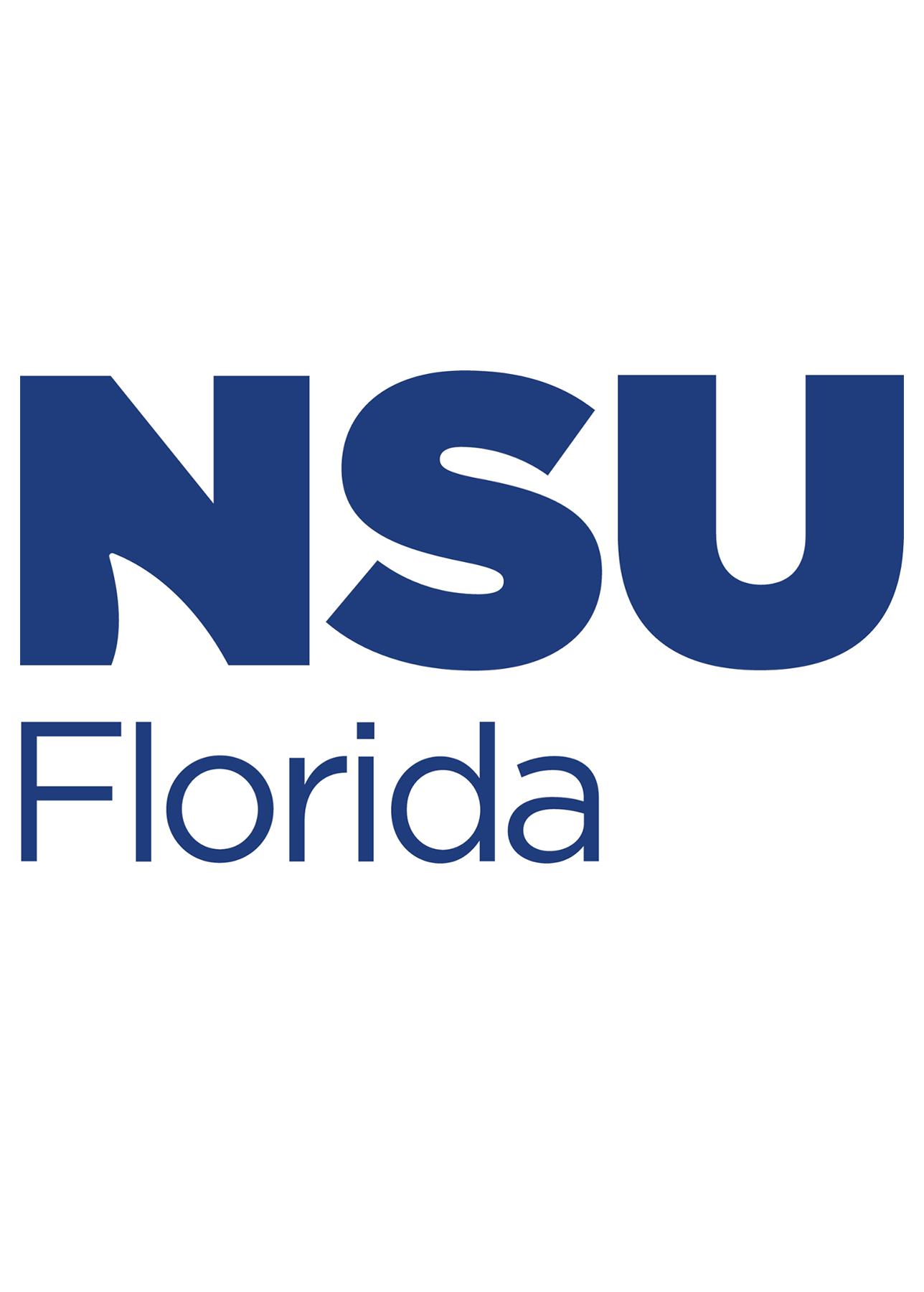
Nova Southeastern University
Intelligent Score: 85.84In-state: $32,370
Out-of-state: $32,370
In-state: $20,618
Out-of-state: $20,618
SAT: 1030-1240
ACT: 20-27
$1,057
Online, On-Campus
Association to Advance Collegiate Schools of Business
31

American University
Intelligent Score: 84.95In-state: $50,542
Out-of-state: $50,542
In-state: $34,533
Out-of-state: $34,533
SAT: 1220-1390
ACT: 27-32
$1,427
Online
Middle States Commission on Higher Education
30

Columbia University School of Professional Studies
Intelligent Score: 84.28In-state: $57,864
Out-of-state: $57,864
In-state: $49,024
Out-of-state: $49,024
SAT: 1460-1570
ACT: 33-35
$2,536
Online, On-Campus
Middle States Commission on Higher Education
36
Still Looking for the Right Fit? Discover Similar Programs
While an online master’s in human resources may be the perfect fit for some students, others may want to focus on a specific branch of HR or pursue education in an adjacent field. Here are other programs students may want to consider:
- Online Master’s in Training and Development
- Online Master’s in Management
- Online Master’s in Organizational Management
- Online Master’s in Negotiation and Conflict Management
- Online Graduate Certificate in Human Resources
What Can I Do With an Online Master’s in Human Resources Degree?</h2>
An online master’s in human resources can help students develop the necessary skills and knowledge for various mid- and high-level HR positions.
Human resources professionals work across nearly every industry, including business and finance, healthcare, education, retail, technology, and more. Several HR specializations may appeal to students, including benefits coordination and management, recruitment, talent development, and more.
For experienced HR professionals, a master’s degree may lead to a management or leadership position. The overall career outlook for management positions is strong through 2032. The BLS reports that roughly 1.1 million new management positions will be available annually through the next decade. The median annual pay for individuals in management positions is $107,360.
A master’s degree is considered a terminal degree in the HR field, although some individuals may pursue a doctorate of business administration (DBA) to qualify for executive or postsecondary teaching positions.
Career Outlook
- Human resources manager — These individuals plan, direct, and oversee various HR duties for a company, including hiring and onboarding, coordinating benefits, training and talent development, employee termination, and more.
-
-
- Median annual salary: $136,350
- Projected employment growth (through 2032): 5%
- New jobs projected: 15,500 per year
-
- Compensation and benefits manager — Ideal for those who want to focus on managing an organization’s pay and benefits structure, working with outside partners like insurance companies, and ensuring pay and benefits comply with federal and state laws.
-
-
- Median annual salary: $136,380
- Projected employment growth (through 2032): 2%
- New jobs projected: 1,100 per year
-
- Training and development manager — This position is responsible for assessing employees’ training needs and providing adequate training and development opportunities to encourage staff growth and effectiveness.
-
-
- Median annual salary: $125,040
- Projected employment growth (through 2032): 6%
- New jobs projected: 3,500 per year
-
- Human resources specialist — A mid-level job, this may be a good fit for students entering the HR field after earning their master’s. Tasks include recruiting, screening, and interviewing job candidates; checking applicant references and backgrounds; processing employee paperwork; and more.
-
- Median annual salary: $67,650
- Projected employment growth (through 2032): 6%
- New jobs projected: 78,700 per year
-
How to Choose the Online Master’s in Human Resources Degree Program That’s Right for You
Step 1: Choose your area of study
If you haven’t already, reflect on what skills you need to gain from your online master’s in HR program to pursue your desired jobs. You should also consider if there’s an area you want to specialize in and if you have a degree preference (for example, an MBA versus an MS). Understanding your educational and career goals will facilitate a more straightforward college search process.
Now is also an excellent time to think about logistics, including whether you’ll enroll in a program full-time or part-time. Only some programs offer both options.
You’ll also want to decide what content delivery method you prefer for your online program. Students in asynchronous programs don’t have pre-scheduled class meetings and can complete their lessons and assignments according to their schedule. This option is the most flexible but has limited interaction with classmates and faculty. Meanwhile, students in synchronous programs have scheduled virtual class meetings, which can provide more interaction and support.
Step 2: Research schools and programs
“Students need to develop a list of their parameters to help them narrow down their school options,” Villagomez says. “It’s essential that students gather information about application requirements, the cost of attendance, access to financial aid, the institution’s reputation and ranking, the types of available professional development resources, and what kind of general and niche support services the school offers.”
Villagomez also encourages students to confirm that the schools and programs they’re considering are accredited. “Verifying the college’s accreditation ensures that the institution has the seal of approval by the U.S. Department of Education,” she says. “With institutional accreditations, colleges are evaluated as a whole and must achieve several standards to receive regional or national accreditation. Programmatic accreditations evaluate the quality and legitimacy of the specific degree programs offered at institutions.”
Some organizations, such as the Association to Advance Collegiate Schools of Business (AACSB) and the Accreditation Council for Business Schools and Programs (ACBSP), specifically accredit human resources programs.
Most schools will publish relevant information for prospective students on their websites. Students can also contact program representatives or admissions counselors for more information. Schools often offer virtual open houses or information sessions for online programs to allow remote students to interact with program reps. Another option is following schools and departments on social media.
Step 3: Prepare for applications and tests
“After conducting research, students should have a strong sense of the admission requirements for the programs they’re considering,” Villagomez says. “Highly selective schools often require well-crafted essays, standardized exams, recommendation letters, and even interviews. With all these requirements, it’s important for students to stay organized with a comprehensive and detailed checklist to track their progress, submit all required materials, and meet deadlines.”
A standard application for an online master’s in human resources program includes the following:
- Application and fees
- Official transcripts from all undergraduate schools attended
- Letters of recommendation from faculty, employers, or colleagues
- Personal statement or essay
- Resume or CV
- GRE or GMAT scores
Some online master’s in human resources programs may have specific requirements regarding undergraduate degree or coursework, minimum GPA, or professional experience. If there are specific application deadlines, submit all application materials promptly to ensure your decision, and potentially your enrollment, is on time.
Step 4: Select your program
Once you’ve completed your research, compare the programs based on your priorities. These priorities may include cost, program completion time, specialization options, or available financial aid. Select the program or programs that best meet your needs and submit your applications.
The number of applications you submit is a personal choice. Some students apply to one or two programs based on their specifications, while others apply to several schools to increase the odds of admission. If you’re admitted to multiple schools, you can again compare them to your priorities to find the best option.
Step 5: Determine how you’ll pay for your degree
If you haven’t spoken to a financial aid representative at your school, now is the time to do so. The financial aid office can provide information about your program’s total cost and options for paying for the degree. Inquire about gift aid, such as merit- and need-based scholarships, grants, and fellowships, which don’t require repayment. Students should explore these options first, as they can significantly reduce the cost of a degree without creating debt.
For students to be considered for any need-based aid, including student loans and work-study, they must complete the Free Application for Federal Student Aid (FAFSA). Schools use the information from this application to determine eligibility for need-based loans, grants, and scholarships. Although private education loans are available, federal student loans have more favorable terms, interest rates, and repayment options.
Individuals working while earning their online master’s in human resources should inquire if their employer offers tuition assistance benefits. Veterans and active-duty military members can research GI Bill benefits and military tuition discounts. All students can check to see if their school offers tuition payment plans.
Frequently Asked Questions About Online Master’s in Human Resources Programs
Should I get a master's in human resources degree in person or online?
This decision ultimately depends on the student’s individual needs, as there are many quality master’s in HR programs available online and in person.
Says Villagomez, “Online programs generally offer a combination of asynchronous and synchronous modalities, so expectations and pacing can vary greatly across courses. With asynchronous courses, interactions with professors and classmates can be limited and may require more effort to stay connected. Meanwhile, synchronous courses can facilitate engagement more easily. Regardless of modality, all online degree programs require a high level of self-motivation, effective time management, and structured independent study.”
Students who thrive in interactive learning environments and need additional accountability may be better suited to an in-person program or a hybrid curriculum that includes online and in-person instruction.
How do I apply for an online master's in human resources degree program?
Contact the school’s admissions office for the most accurate information about their application procedures.
Generally speaking, students will apply for an online master’s in human resources through an admissions portal on the school’s website. Students can use this portal to submit an application and any required fees, as well as supplemental materials like letters of recommendation, essays, and resumes. Students should send official documents like transcripts directly to schools. Some programs may require an interview with applicants as well.
Before starting an application, students should confirm that they meet the basic eligibility requirements for the program, such as a minimum undergraduate GPA or a specific undergraduate major.
How much does an online master's in human resources degree cost?
The Education Data Initiative reports that the average cost of a master’s degree in the U.S. is $65,134. However, what an individual student pays for an online master’s in human resources will vary depending on multiple factors. For the most accurate information on the cost of a specific program, students should speak to a financial aid counselor at the institution.
A key factor is whether a school is public or private. Tuition tends to be highest at private schools. However, many public universities charge different tuition rates for in-state and out-of-state students. Online students can inquire whether tuition is the same regardless of where they reside.
When creating a budget, Villagomez also reminds online students to factor in costs for internet service, reliable hardware, and any special software they may need.
How long does it take to complete an online master's in human resources degree?
Based on the number of credits the program requires, an online master’s in human resources can typically be completed in 1-2 years of full-time study. Part-time students may take an extra year or two to finish the program.
Some schools offer accelerated master’s programs, in which students complete all required coursework in a compressed time frame. These programs are usually available to students with previous educational or professional experience in human resources.
Is an online master's in human resources degree worth it?
From an ROI perspective, an online master’s in human resources is a solid investment, especially for those who want to build their skill set quickly. The job outlook for the field is steady, with average growth projected through 2032. Management positions in the HR field are relatively high-paying. The top 10% of HR managers earn upwards of $224,360 annually, while the bottom 10% of earners make around $76,610 per year.
Depending on a student’s background, there may be other routes besides a master’s degree to help them achieve their goals. For example, a graduate certificate in human resources can provide targeted coursework to help students enhance their skills without committing to the full cost and time commitment of a master’s degree.
Related Resources
Compare School Options
Related Degrees
- Supply Chain Management
- Human Resources
- Business Analytics
- Project Management
- Digital Marketing
- Information Systems Management
- Business Administration
- Training and Development
- Sustainability
- Economics
